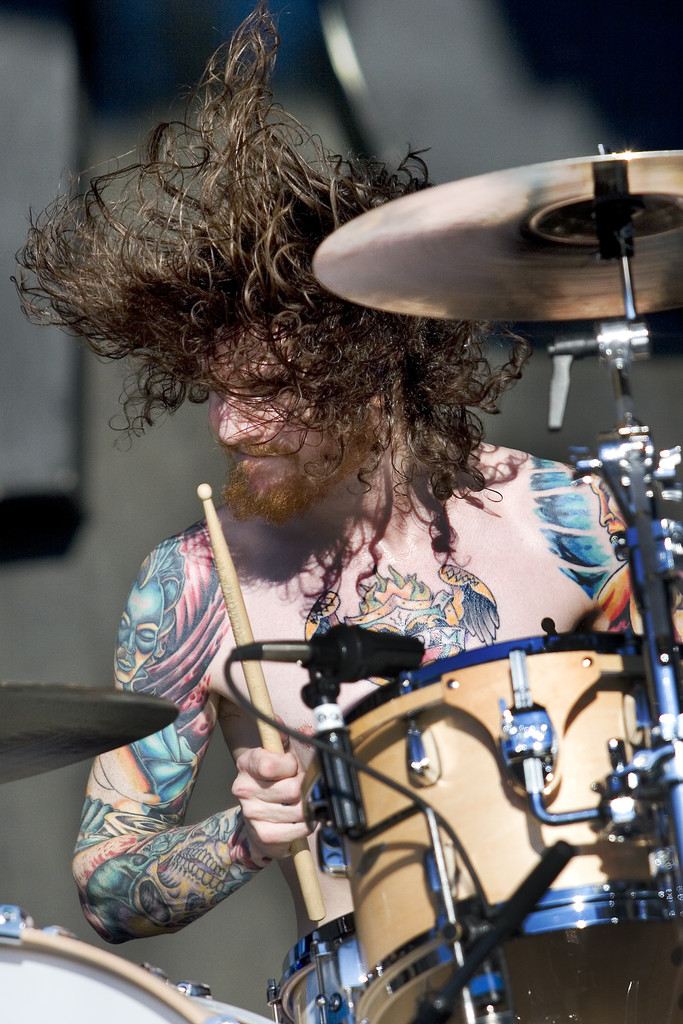Best of the Blog: Andy Hurley on recording Ironiclast: Part 1
Drummer talks us through supergroup's debut album

© Andrew Goetz/Corbis
Another day and more from the rhythmmagazine.co.uk 2011 vaults. Today we've flagged up our two part interview with Fall Out Boy/The Damned Things drummer Andy Hurley.
The Damned Things aren't content with being part of one revival. Nope, they've got their foot in two camps. Not content with being part of classic rock's mass rise, they're also one of the latest batch of many killer 'supergroups'.
As they ready their debut album, Andy Hurley gave us the lowdown on how the Thin Lizzy loving, star-filled recorded their debut album.
Did you change much around in terms of kit from what you'd use with Fall Out Boy?
"Not really. I'm using a new ride but that's about it. I used a china in the studio as well that I don't use with Fall Out Boy, but I haven't been using it live. Generally I keep my kit the same in terms of outside of the brass I keep the actual drum kit the same."
"We really went for a live Zeppelin big room kind of sound..."
Was it more a case tweaking rather than major overhauls?
"Definitely. Especially when we're recording there's a lot of different snares we used and we used them differently to how we would use them with Fall Out Boy. We used a lot of snares in the studio, so many I can't even remember them all. The drum tech on the record had like 20 snares to choose from. I feel like the go to is always a Black Beauty or a bell brass though. Those are always great rock snare drums."
Was there much experimenting with your sound and kit in the studio?
Get the MusicRadar Newsletter
Want all the hottest music and gear news, reviews, deals, features and more, direct to your inbox? Sign up here.
"Yeah, that's important too. We really went for a live Zeppelin big room kind of sound with this. It's not to a grid, it's not all chopped up and corrected in Pro Tools. That's a big difference. I play live with Fall Out Boy too, but with music like that you definitely grid it a little bit more. But it's not too different because you're using big chunks of a song and you just use multiple takes. But I feel like we used more takes for this because we wanted to get actual complete songs."
Did that approach take some getting used to?
"Yeah that was a big difference. It came pretty quickly though. I'm always pretty quick when we're recording. I think I had less time to learn these songs than I normally would because once we started nailing it down in the studio things were going fast and there were a few songs that were maybe 90 percent done and then in the studio we experimented with kick patterns and changing up arrangements here and there."
Does going for the one take approach help when you take the songs out live?
"Definitely. You learn the songs that way. You get to know them really well. And it gives the album a live vibe. That's definitely the kind of vibe that we wanted to go for. It's a lot more live sounding and raw, that 70s classic rock sound."
Rich is a teacher, one time Rhythm staff writer and experienced freelance journalist who has interviewed countless revered musicians, engineers, producers and stars for the our world-leading music making portfolio, including such titles as Rhythm, Total Guitar, Guitarist, Guitar World, and MusicRadar. His victims include such luminaries as Ice T, Mark Guilani and Jamie Oliver (the drumming one).










